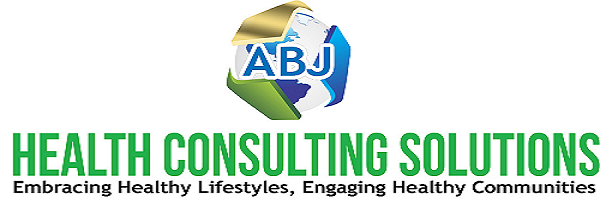[layerslider id=”1″]
What We Do
ABJ Health Consulting Solutions, Inc. provides technical assistance, training, research, project management and database development to various health institutions and organizations. We offer a wide range of services in the field of epidemiology to our clients, each with the objective of improving the quality of life and well-being of individuals and promoting healthy lifestyles in vulnerable populations.
Poor health outcomes are influenced by social conditions in which persons are born, grow, live and age. The inequitable distribution of resources among underserved populations or people who lack access to affordable healthcare demands an increased understanding of social determinants of health and community engagement. Our objective is to provide consulting solutions to the disproportionate burden of diseases due to socioeconomic, cultural, geographical and environmental factors that influence health outcomes.
ABJ works with federal, state and local governments, international governments, international organizations, nonprofit institutions and universities in the United States and abroad to offer confidential services and evidence-based solutions to public health issues.
Areas of Expertise
Epidemiology
Project Management
Survey Development
Statistical Analyses
Design & Research Methodology
Training, Workshops & Seminars
Disease Surveillance
Investigation of Disease Outbreaks
Data-collection Instruments
Collection of Surveillance Data
Data Analyses
Prevention Strategies
Global Health
Health Services
Chronic Disease Prevention
Reproductive Health
Tuberculosis Control
STI and HIV Prevention
Blood Donor Recruitment
Donor Barriers and Motivators
Donor Recruitment and Retention
Donor Recruitment Strategies
Collection of Donor Data
Analyses of Blood Donor Data
Data Analysis
Data Management
SAS Programming
Statistical Programming – SPSS, Epi-Info
Modeling, Regression, Survival Analyses
GIS & Mapping Applications
Research & Evaluations
Blood Donor Behavioral Studies
Health Disparities
Determinants of Health
STI and HIV Studies
GIS and Spatial Epidemiology
Latest News Headlines
Ebola Virus Disease
The Source of Ebola Virus Disease
Retrospective studies from the World Health Organization have identified the source and spread of the Ebola Virus Disease (EVD) in West Africa. The index case was identified as an 18-month old boy who lived in Guinea and who may have been exposed to wild bats while playing in his backyard. Shortly thereafter, the boy developed symptoms such as fever, black stool and vomiting and died two days later on December 28, 2013. The virus then spread to several of the boy’s close and extended relatives including midwives and hospital staff who took care of him. Eventually, the virus spread to other areas of Guinea. Some evidence has shown that human settlement close to deforested areas brings closer contact to wild animals and bats, which are natural reservoir for these viruses. Over 24,000 persons have been infected and over 9,900 deaths have been reported from the Ebola virus.
The Science of Ebola Virus
Ebola is not considered a respiratory-borne virus. However, airborne-level precautions are recommended especially when the virus may be replicating in the lungs, or when the patient produces a large amount of sputum. The virus is capable of mutating like other RNA viruses. It is also feasible that the virus could become either more virulent or less virulent during its replication and mutation. How long does the virus survive on dried surfaces? More research is needed. It is possible that the virus could survive a considerable time in exposed blood, vomit or diarrhea. Some people have been infected when touching a dead body or at funeral homes. Sexual transmission of Ebola may be possible but this has not yet been documented or verified. The evidence of detected Ebola in vaginal secretions or in semen is weak and requires more research. Until more studies have been conducted, sexual abstinence for at least three months is recommended for infected patients.
Want to Know More?
To learn more about our services and expertise, or to have an ABJ professional contact you, please click on Contact Me.
